Analysis of Educational Approaches in Karamoja
Elizabeth Stites
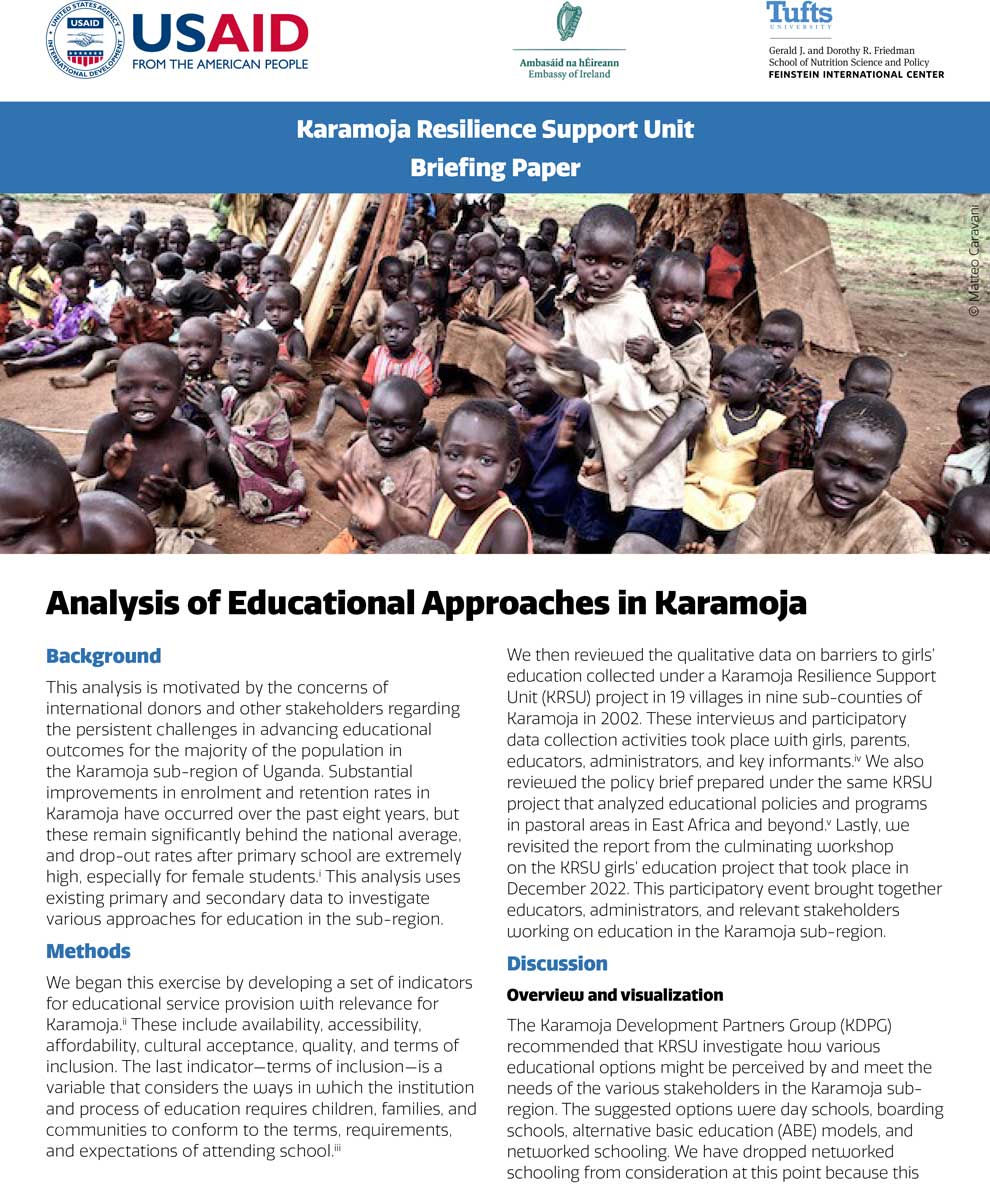
Analysis of Educational Approaches in Karamoja
This analysis is motivated by the concerns of international donors and other stakeholders regarding the persistent challenges in advancing educational outcomes for the majority of the population in the Karamoja sub-region of Uganda. Substantial improvements in enrolment and retention rates in Karamoja have occurred over the past eight years, but these remain significantly behind the national average, and drop-out rates after primary school are extremely high, especially for female students.i This analysis uses existing primary and secondary data to investigate various approaches for education in the sub-region.
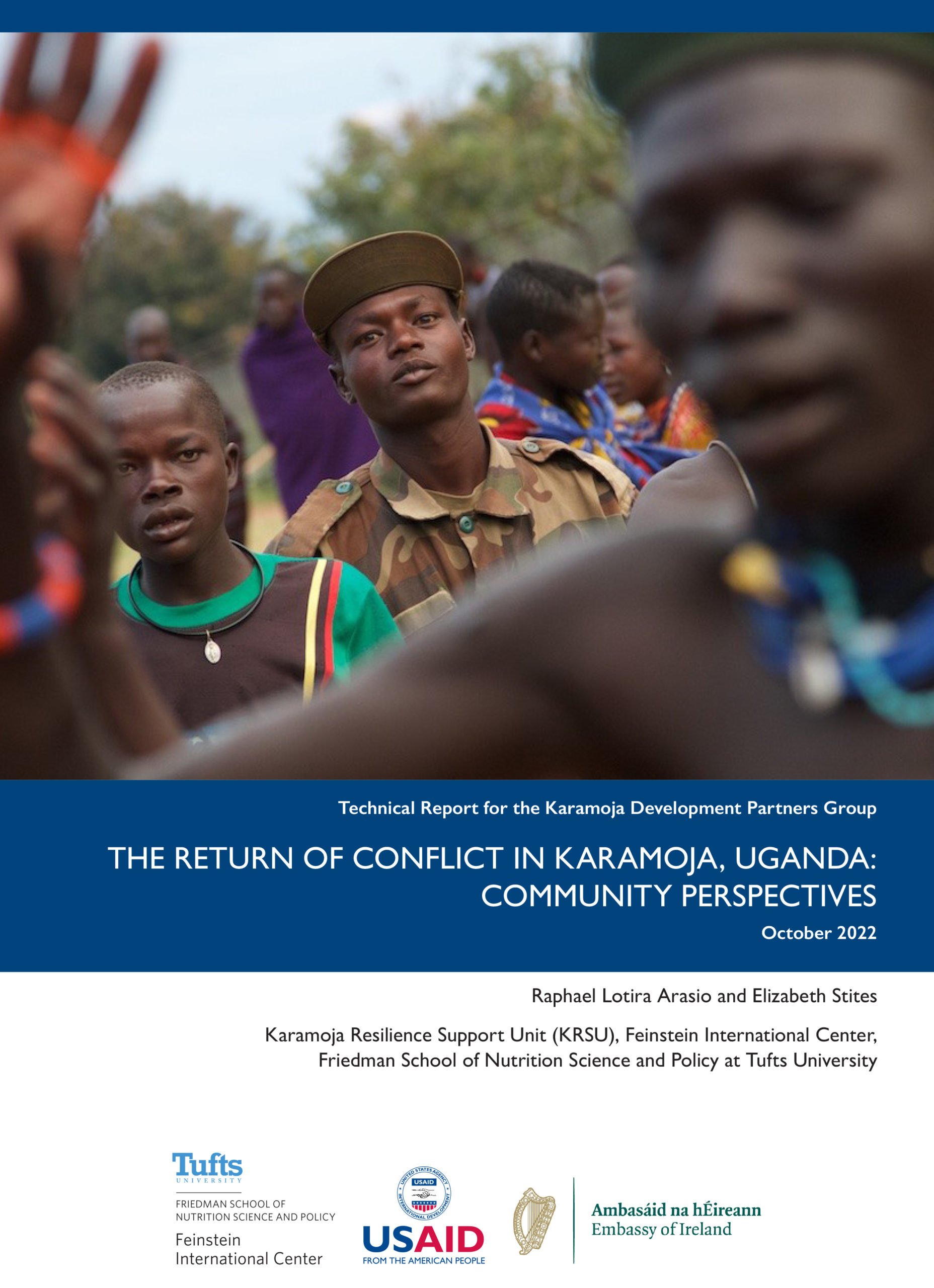
The Return of Conflict in Karamoja, Uganda: Community Perspectives
After nearly 10 years of relative peace, conflict and insecurity returned to the Karamoja sub-region of northeastern Uganda starting in 2019. This assessment investigates this resumption of conflict and insecurity from the perspective of the communities most involved and affected.
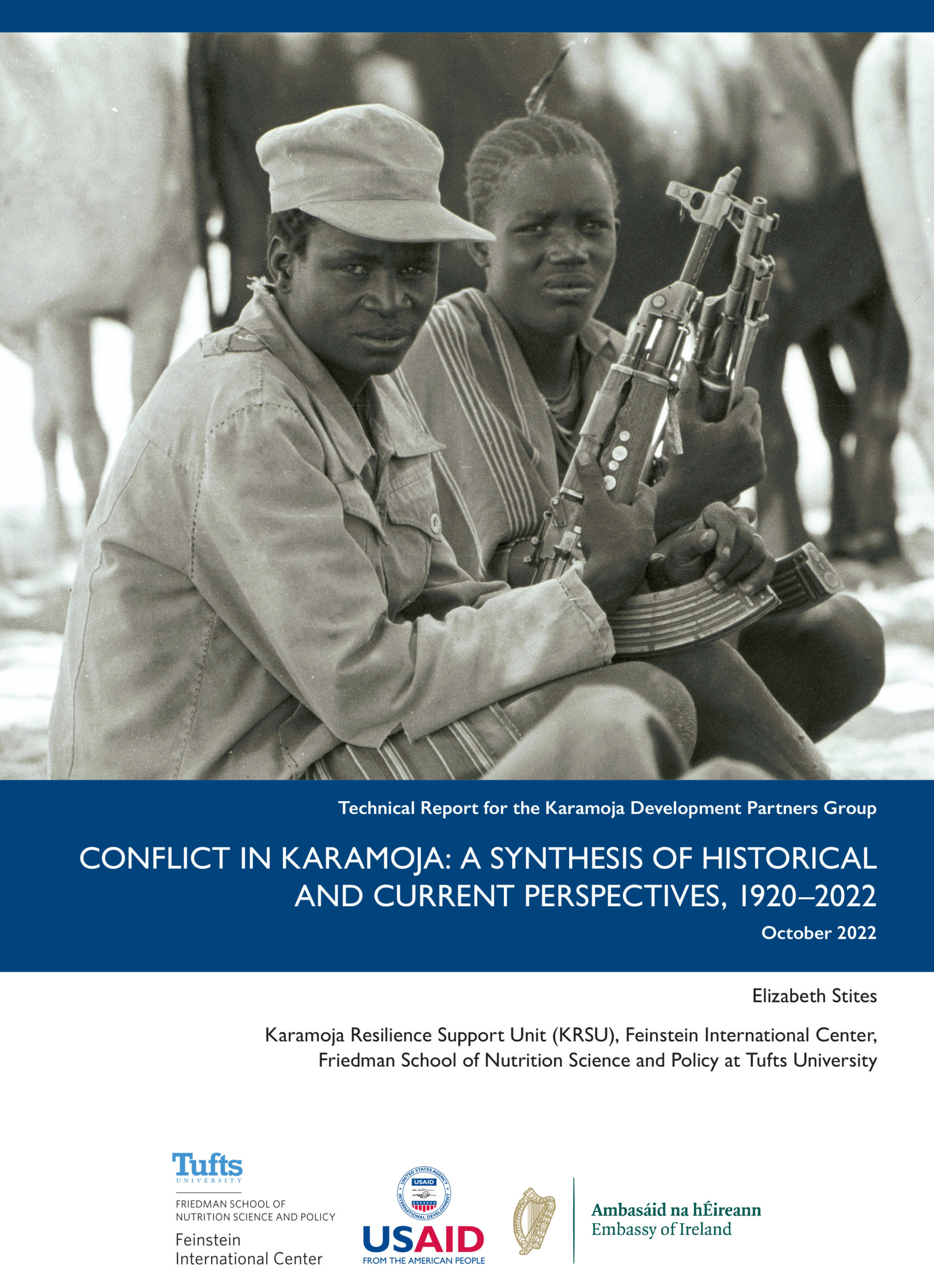
Conflict in Karamoja: A Synthesis of Historical and Current Perspectives, 1920-2022
This knowledge synthesis focuses on violent conflict in the Karamoja sub-region of northeastern Uganda. While violence and conflict both can and do take many forms, this synthesis takes as its focus the phenomenon of cattle raiding and associated violence. This knowledge synthesis briefly describes the concept and role of cattle raiding within pastoral societies in East Africa and the Karamoja Cluster and then examines different historical periods and experiences of violent conflict associated with cattle raiding within the Karamoja sub-region.
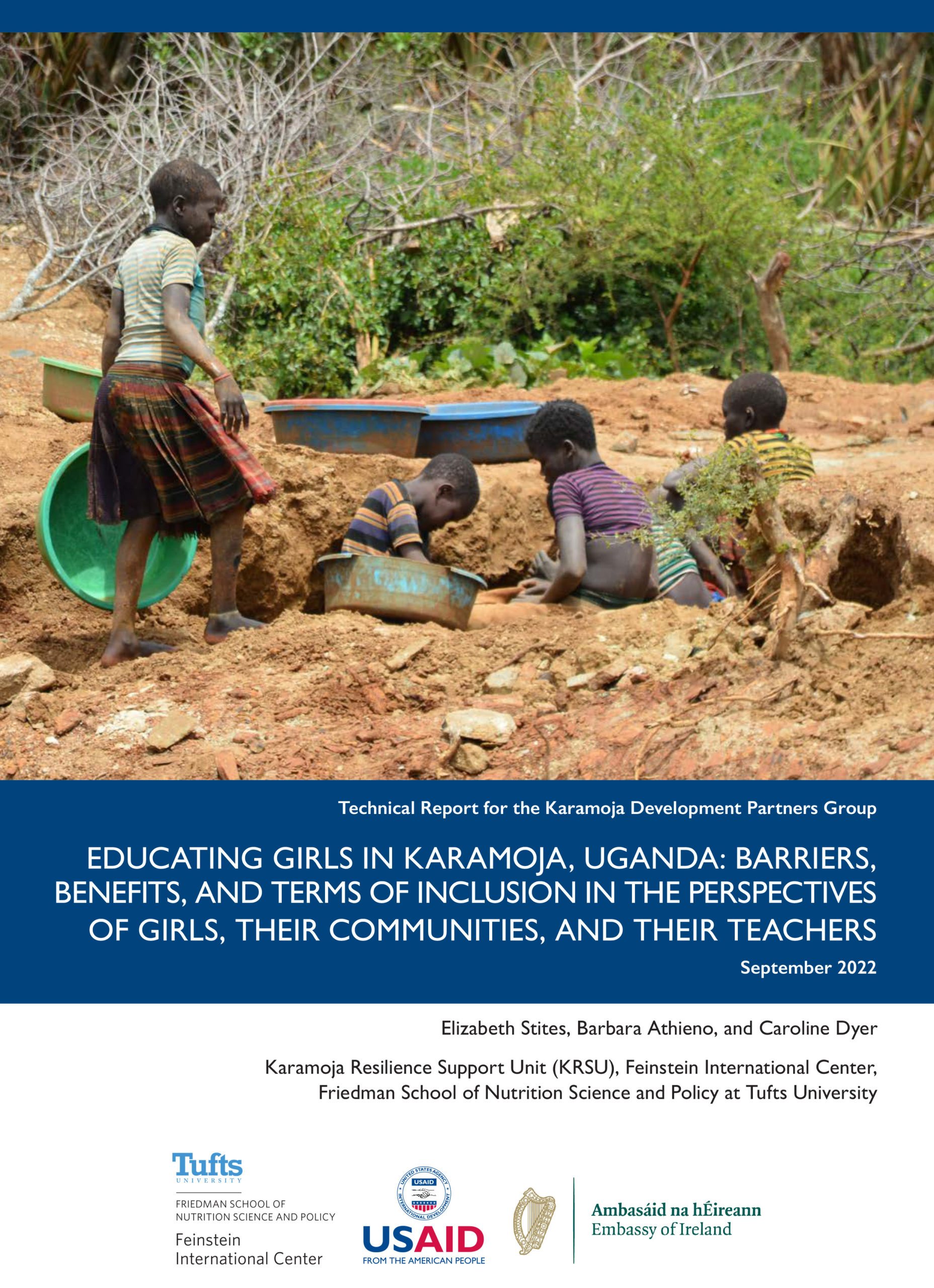
Educating Girls in Karamoja, Uganda: Barriers, Benefits, and Terms of Inclusion in the Perspectives of Girls, their Communities, and their Teachers
This scoping report investigates barriers, benefits, and “terms of inclusion” for girls’ education in the Karamoja sub-region of Uganda. Karamoja has some of the lowest education indicators in the country, with females generally faring much worse than males. The report examines the experiences and perceptions of girls, male and female community members, and teachers about girls’ education in the region, drawing on an assessment that took place from June to August 2022 in 10 sites in four districts: Amudat, Kaabong, Moroto, and Napak.
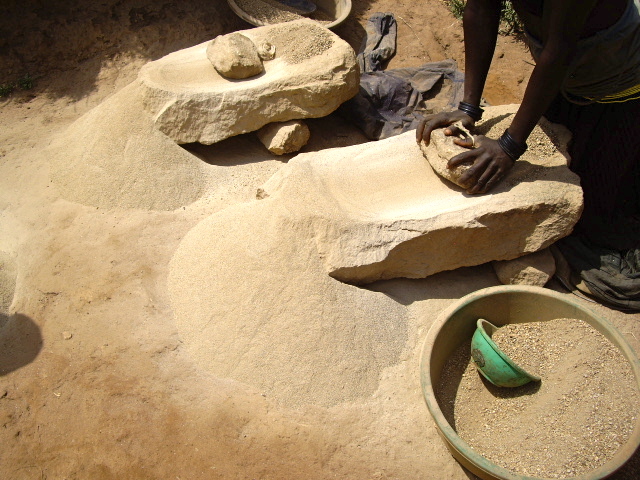
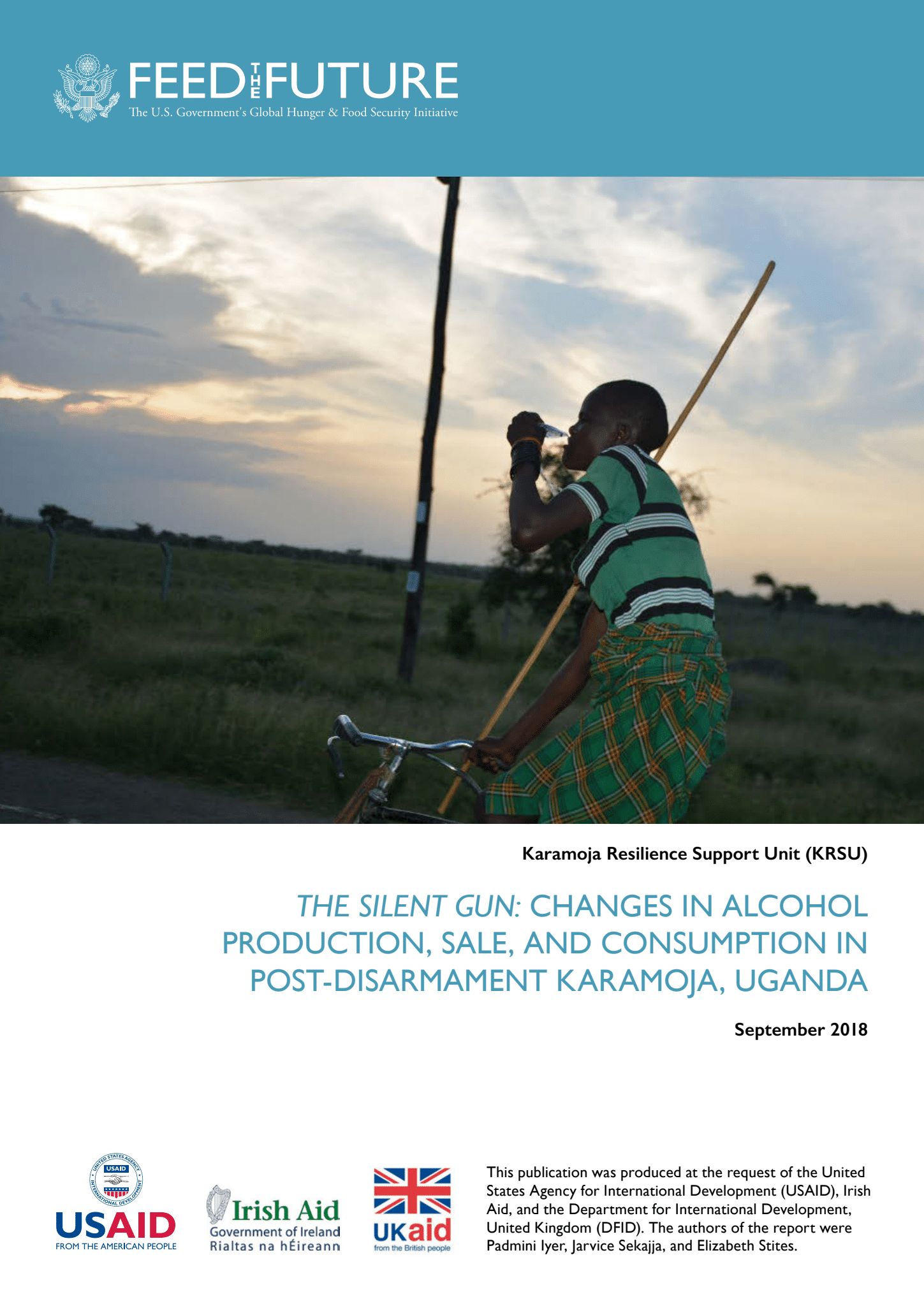
THE SILENT GUN: CHANGES IN ALCOHOL PRODUCTION, SALE, AND CONSUMPTION IN POST-DISARMAMENT KARAMOJA, UGANDA
Research and observations over the past decade have pointed to the high prevalence of alcohol use in Karamoja. Brews made locally of sorghum and maize have sociocultural, nutritional, and economic significance.
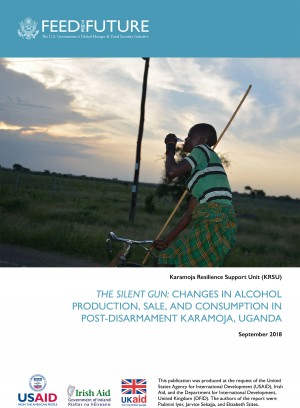
The Silent Gun: Changes in Alcohol Production, Sale and Consumption in Post-disarmament Karamoja, Uganda
Investigation into changes in alcohol production, sale, and consumption in Karamoja since the start of the 2006 disarmament campaign.
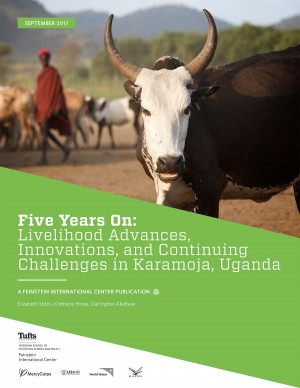
Five Years On: Livelihood Advances, Innovations, and Continuing Challenges in Karamoja, Uganda
The report is part of an evaluation of the Growth, Health and Governance Program, that measures changes in product service utilization and livelihood development and pragmatic innovations in Karamoja region.
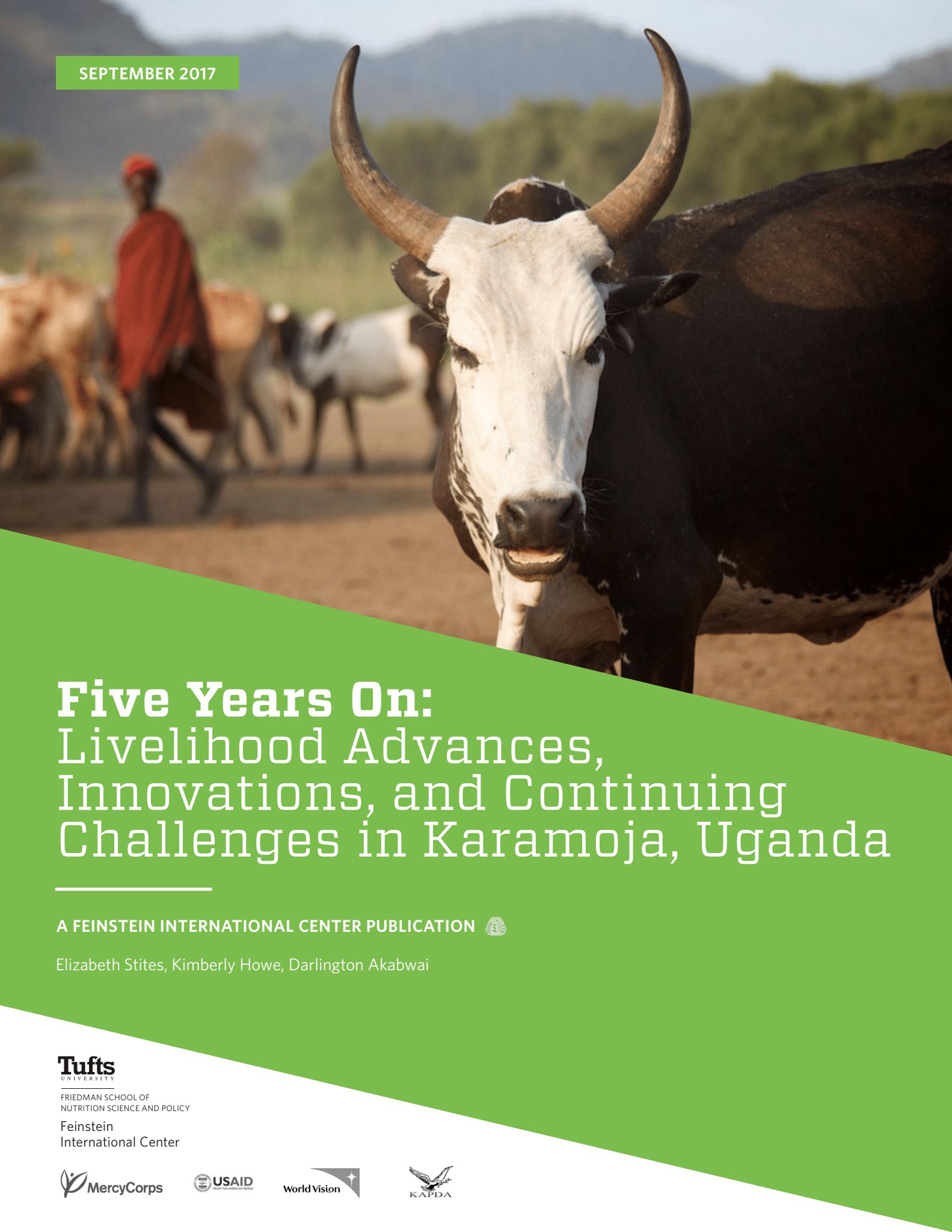
Five Years On: Livelihood Advances, Innovations, and Continuing Challenges in Karamoja, Uganda
A quantitative analysis of a representative group of villages indicates that there has been a widespread increase in the utilization of services as well as improvement to well-being for residents of northern Karamoja since 2013
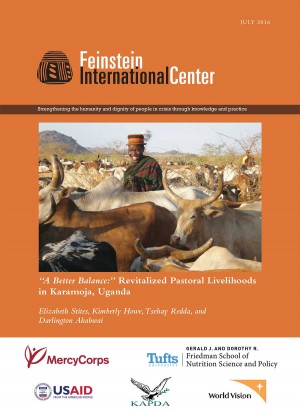
A Better Balance: Revitalized Pastoral Livelihoods in Karamoja, Uganda
Livelihoods in Karamoja continue to change as security improves; this includes a revitalization of pastoral production for some households. This report details the findings from research undertaken in February and March 2016 in four districts of Karamoja aimed at better understanding the current patterns of pastoral and agro-pastoral production in the region.
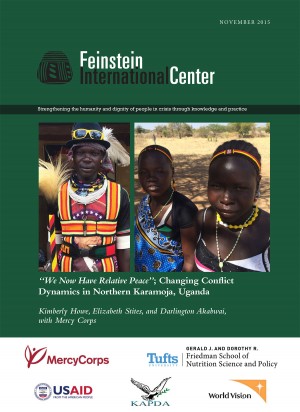
“We Now Have Relative Peace”; Changing Conflict Dynamics in Northern Karamoja, Uganda
This report reflects research from early 2015 conducted by the Feinstein International Center at the Friedman School of Tufts University and Mercy Corps in northern Karamoja, Uganda. The research examined changing conflict dynamics and related conflict mitigation and peacebuilding initiatives. The objective of the study was to provide a nuanced understanding of the current threats to security at the household, community, district and regional levels, and to examine how these dynamics have changed in recent years. The study examined conflict mitigation initiatives, including access to and efficacy of these systems.
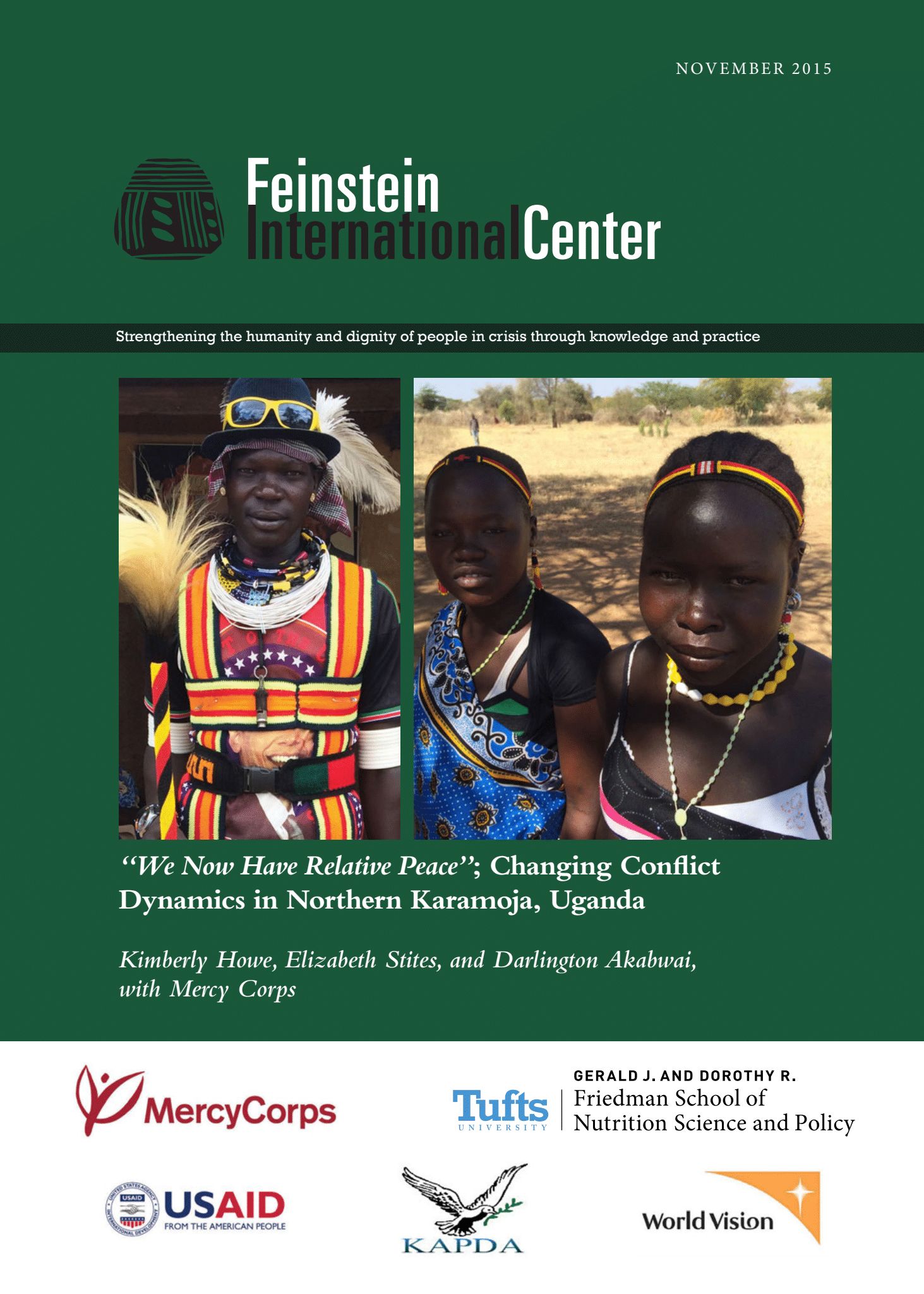
“We Now Have Relative Peace” ; Changing Conflict Dynamics in Northern Karamoja, Uganda
The objective of the study was to provide a nuanced understanding of the current threats to security at the household, community, district and regional levels, and to examine how these dynamics have changed in recent years.
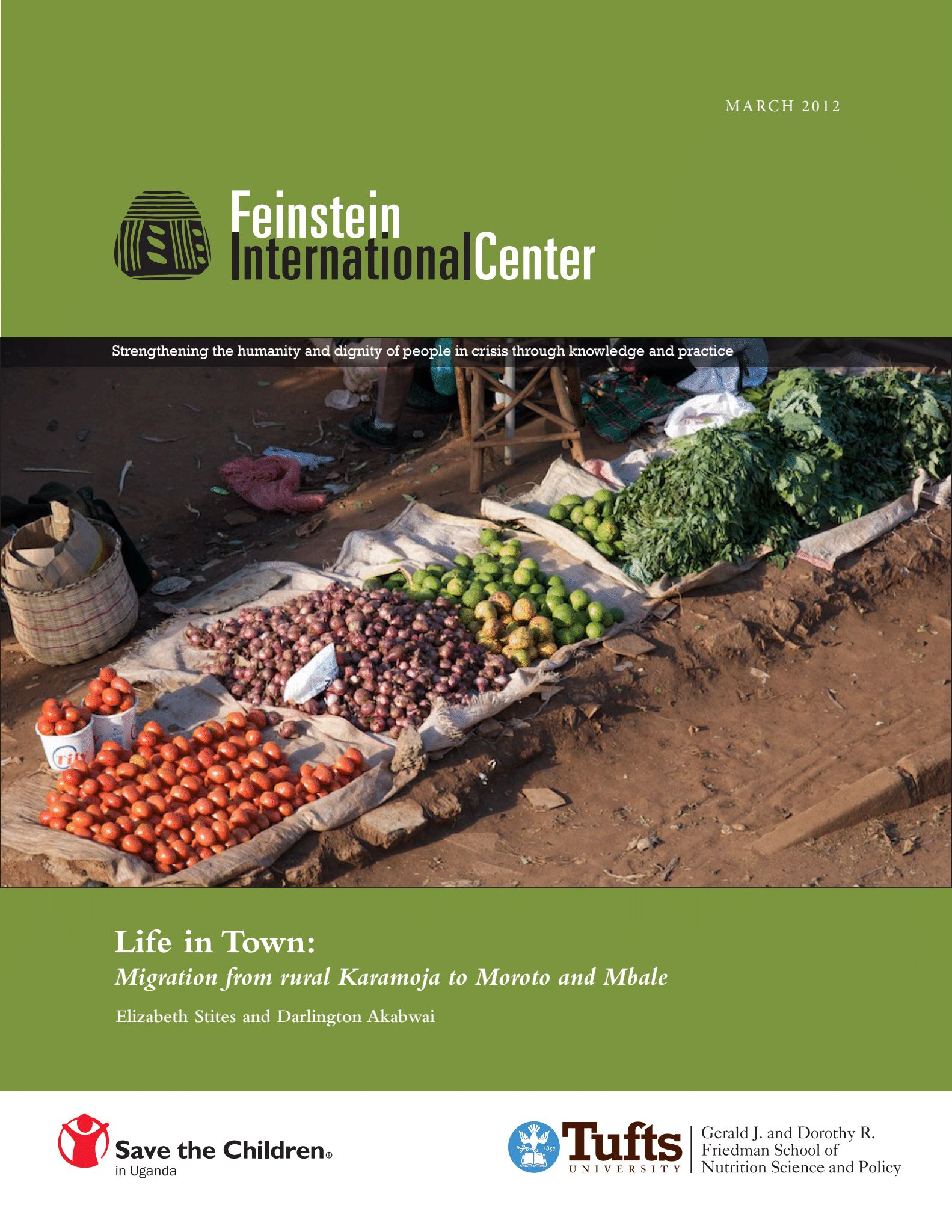
Life in Town: Migration from rural Karamoja to Moroto and Mbale
The phenomenon of out-migration from Karamoja is well known and widely discussed both by rural residents in the region and by officials in receiving cities
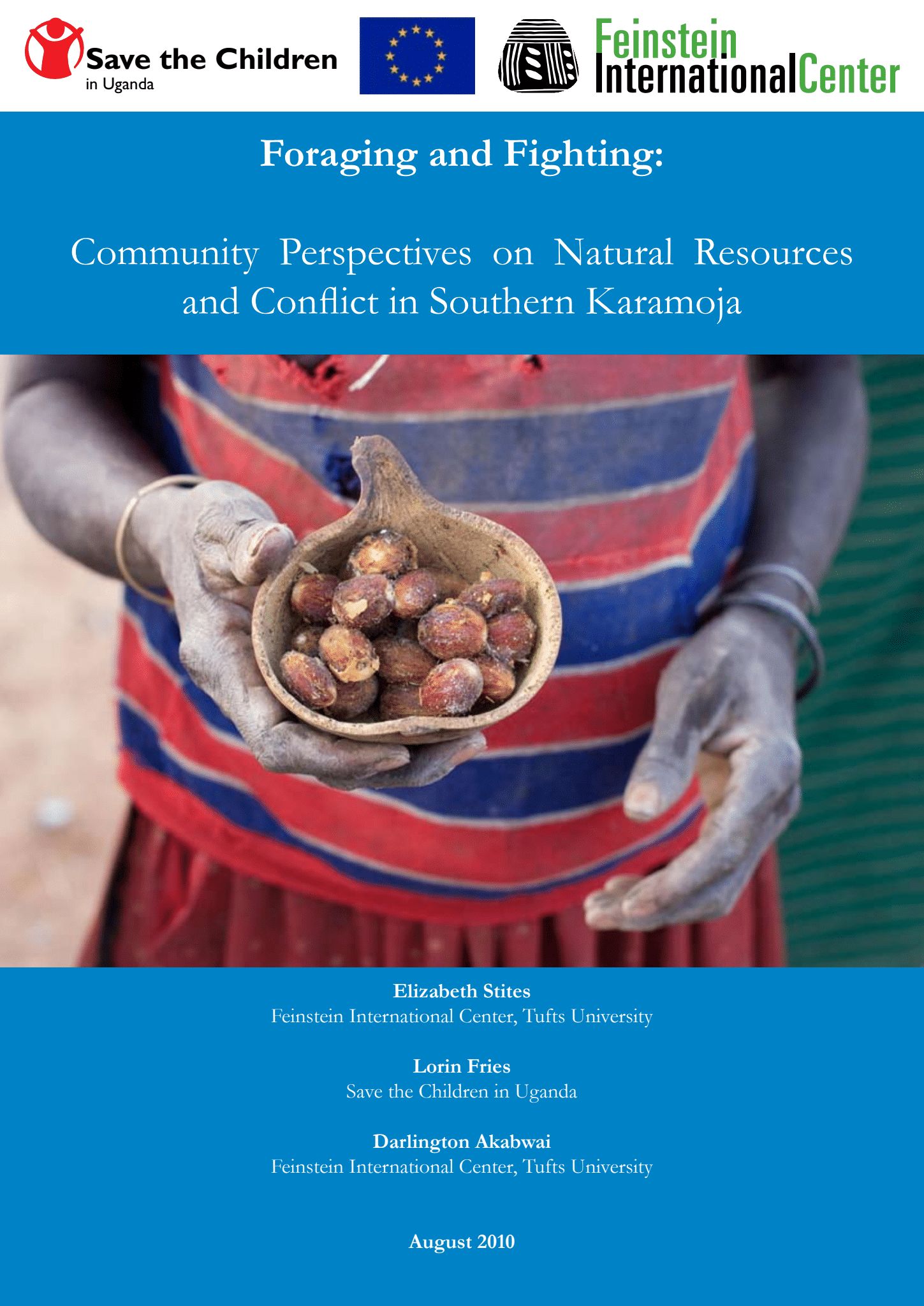
Foraging and Fighting: Community Perspectives on Natural Resources and Conflict in Southern Karamoja
In our research in Karamoja since 2005, respondents often discuss problems with natural resource access and availability, and with comparable frequency they describe conflict with neighboring or nearby groups who are also accessing natural resources.
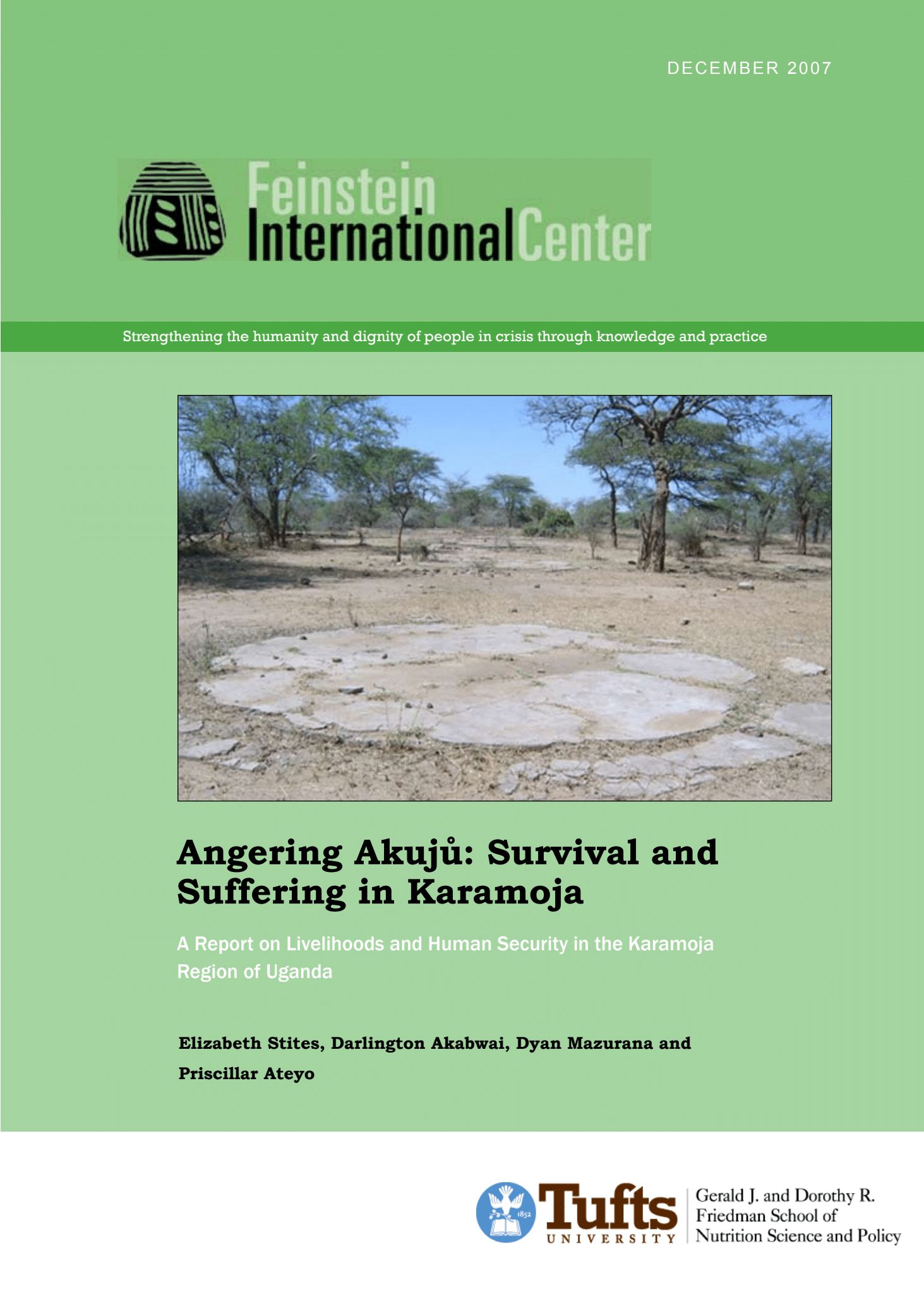
Angering Akujů: Survival and Suffering in Karamoja
A Report on Livelihoods and Human Security in the Karamoja Region of Uganda
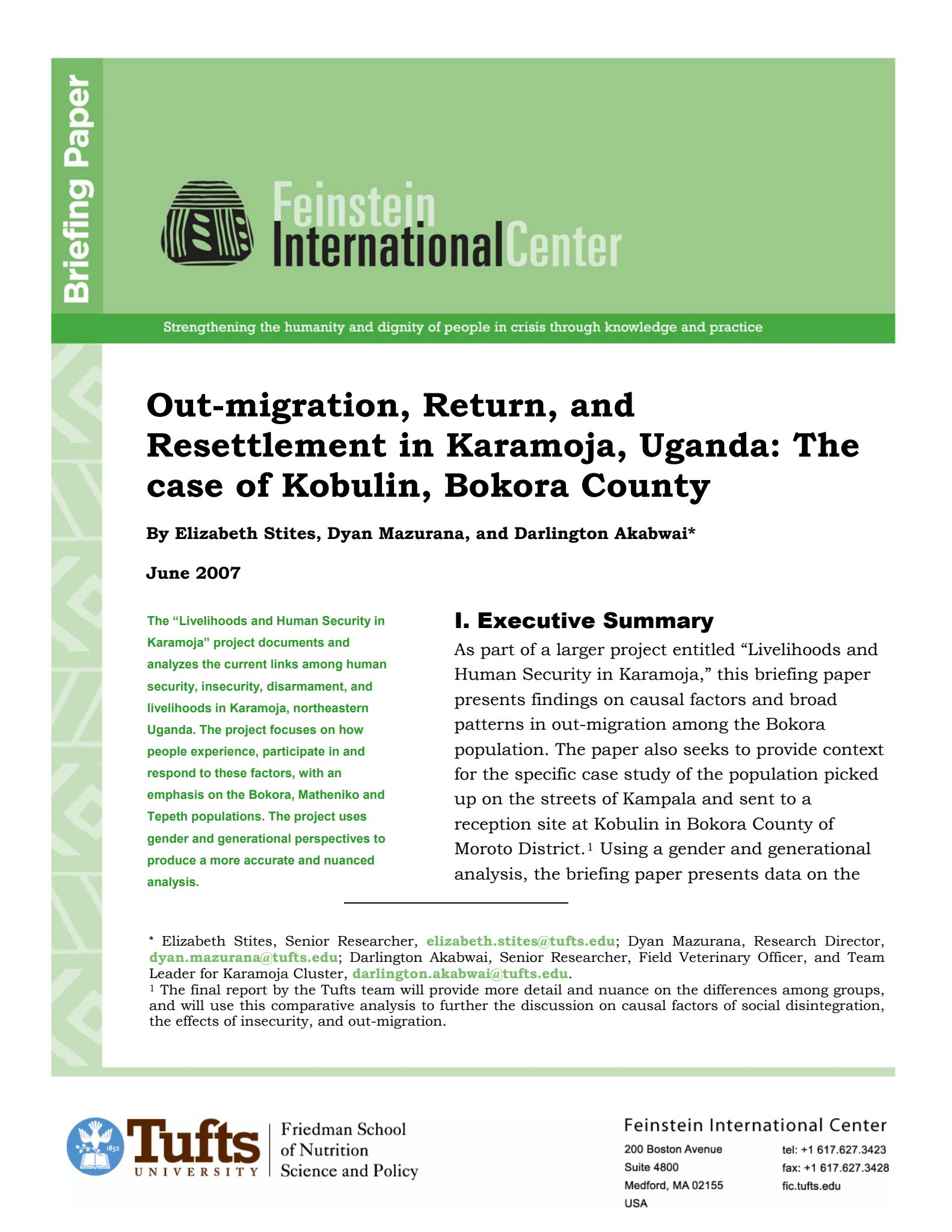
Out-migration, Return, and Resettlement in Karamoja, Uganda: The case of Kobulin, Bokora County
As part of a larger project entitled “Livelihoods and Human Security in Karamoja,” this briefing paper presents findings on causal factors and broad patterns in out-migration among the Bokora population.